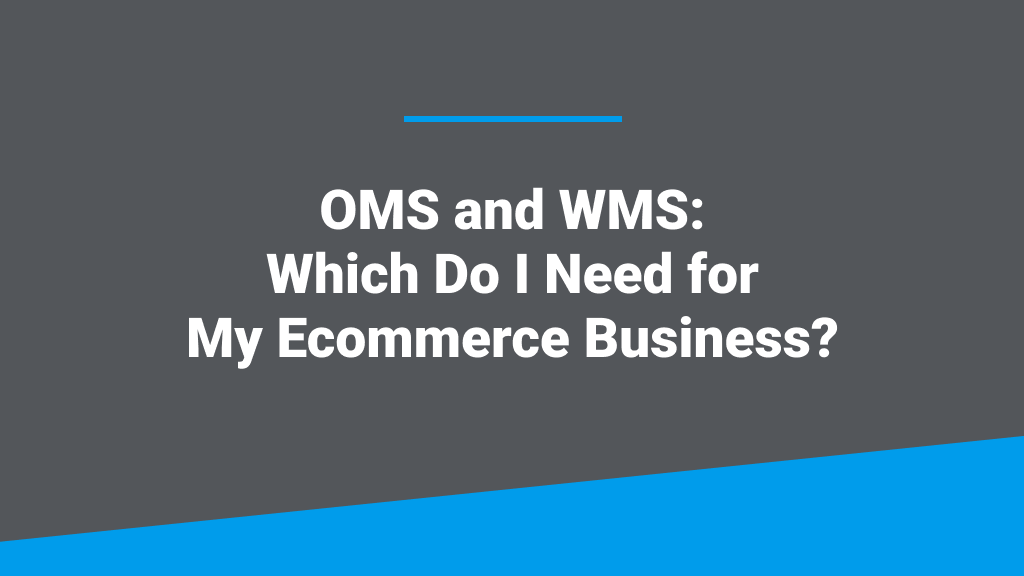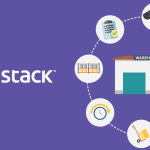
Key Takeaways
- OMS stands for ‘order management system’ and WMS stands for ‘warehouse management system.’
- An ecommerce business will need an OMS if it begins to struggle to manage its orders and multiple fulfillment methods.
- A WMS will be required if a business manages a large inventory and seeks to improve performance and fulfillment without increasing staff.
- Ecommerce solutions, like Descartes Sellercloud, can centralize order and warehouse management as well as many other operational needs.
OMS and WMS solutions are critical for ecommerce businesses to manage their orders and warehouses efficiently. As an ecommerce company scales, these solutions become more important, and businesses must rely on them to manage their workload and continue to grow.
Descartes commissioned a survey of 8,000 consumers in North America and Europe for its Annual Ecommerce and Home Delivery Consumer Sentiment Study. One of the findings from the 2025 survey was that poor delivery experiences are more likely to frustrate those under 35 who “offer the greatest lifetime customer value to retailers,” and whose online spending has grown the most since the pandemic. According to the survey, “79% of under 35 consumers—or almost four in five—reported issues with home delivery this year.”
It is crucial to perfect order and warehouse management to ensure customers receive the correct order promptly and continue to return to your brand. OMS and WMS solutions can help you do this.
In this article, we’ll explain the difference between OMS and WMS, which solution is best suited to solve which challenges, and how Descartes Sellercloud can help you overcome OMS and WMS challenges with one centralized solution.
What Is the Difference Between OMS and WMS?
An OMS helps businesses manage their orders, while a WMS helps businesses manage their warehouse. Generally speaking, an OMS helps a business manage its order cycle, from order creation to order fulfillment to any after-sales services. Meanwhile, a WMS helps businesses manage their day-to-day warehouse operations.
However, there is no right or wrong answer to what an OMS or WMS is. A bare-bones OMS would just manage orders and nothing else, but most include capabilities for shipping, warehouse, and inventory. Similarly, a WMS can also come with features that are often provided by other solutions, and different WMS solutions can vary drastically depending on what they offer.
The same can also be said of other systems commonly used by ecommerce businesses, such as Inventory Management System (IMS ) and Enterprise Resource Planning (ERP) solutions. There is no clear definition of what each of these solutions should or should not offer.
OMS technology can include some WMS functionality, though it is not as advanced as a standalone WMS. A WMS with OMS features is less common, while it can have OMS features, it’s focused on orders that can be fulfilled with the WMS. An OMS, on the other hand, includes orders that will be fulfilled via external parties or other fulfillment centers. Again, this is typically the case, but it can vary by solution.
Typical use cases covered by an OMS:
- Process online (and offline) orders from multiple sales channels.
- Track order status from placement to last-mile delivery.
- Manage returns and exchanges across sales channels.
- Synchronizes inventory availability across channels.
- Route orders to optimal fulfillment locations for faster delivery.
Typical use cases covered by a WMS:
- Assists warehouse staff with picking and packing processes.
- Tracks real-time inventory levels within the warehouse.
- Assists with putaway and replenishment tasks.
- Optimizes warehouse processes to improve storage and picking.
- Uses barcode scanning devices to automate warehouse operations.
It is also worth noting that there are variations of WMS and OMS that solve niche issues.
Do I Need an OMS or WMS for My Business?

Before we get bogged down in which needs OMS and WMS are most suitable for. It is worth noting that when researching the most appropriate solution for your business, you should focus on the capabilities you need and the challenges you need to solve, and less so on how the solution brands itself.
Different business types have different challenges, so they require specific functionalities from the solutions they rely on. Here are some quick examples:
- If a pet shop sells dog food, it will need a solution that supports expiration dates, while a car parts business won’t.
- A pet shop might require a solution that supports product variations, while a car parts business probably won’t.
- A car parts business will likely need a solution that supports fitments for Amazon and eBay, while different online businesses probably won’t.
- Electronics and jewelry businesses will need a solution that tracks serial numbers to prevent fraudulent returns, while a pet shop probably won’t.
Let’s now look at the different scenarios in which you may need an OMS, WMS, a combination, or something altogether different.
Why You Might Need an OMS
Your business will need an OMS if orders are becoming difficult to manage and time-consuming. You may have too many orders from one or multiple channels, or you may have too many locations, or manage different third-party logistics (3PLs) providers and fulfillment partners. This additional complexity not only requires more personnel and staffing hours, but it also can result in more mistakes.
An order management system can centralize orders to one interface to make them easier to manage and track. Depending on the functionality, it may be able to automate processes, allowing you to speed up order processing and reduce errors.
As mentioned above, OMS solutions can vary in functionality. For example, R&Y AC Compressors struggled to process the immense number of orders they received. They had an OMS, but they still needed to do a lot of manual work. Orders had to be printed from channels. Moving to Descartes Sellercloud, they now save on average three to five hours a day.
Why You Might Need a DOM
A Distributed Order Management (DOM) system is a subset of an OMS that is ideal for businesses with multiple warehouses in different parts of the country. It helps businesses manage order fulfillment across channels, locations, and inventory sources. Unlike a traditional OMS, a DOM optimizes fulfillment dynamically and identifies the best location to ship orders from.
A business may need a DOM to tackle complex, omnichannel demands, such as balancing speed, cost, and availability, to improve efficiency across distributed networks.
Want to learn more about order management? Then you need Descartes Sellercloud’s order management guide.
Why You Might Need a Dedicated WMS
You might need a dedicated WMS if you are working with larger inventory volumes and seek to improve performance and scalability of fulfillment volume without increasing your warehouse staff. It may also be the case that your warehouse operations are becoming overly complex.
Walking Comfort realized they needed a WMS when they moved their operations to a larger warehouse to make maximum use of the space. Using Descartes Sellercloud’s WMS module Skustack and mobile scanning devices, they can update inventory within their warehouses on the fly.
You may also need a dedicated WMS if your warehouse has become disorganized. For example, NJ Rising Stars provides reverse logistics services and works with a large number of single-item SKUs. Operating in a large warehouse, it was incredibly difficult to track down these single items without a WMS. Skustack helped them solve this challenge.
Unsure if you need an ERP or WMS, then read this blog post: ERP vs. WMS: What Do I Need for My Ecommerce Business?
Why You Might Need an Ecommerce Solution with OMS and WMS Features
If you are struggling with both order and warehouse management challenges, a robust ecommerce solution that encompasses both OMS and WMS features would be an ideal option.
You may have outgrown existing systems, and your current process is preventing your business from growing further. You might require more complex features and the ability to customize the software to work the way you need it to.
With an all-in-one solution, you can centralize your ecommerce operations to one system and eliminate integration issues between your solutions. Furthermore, you can bring in other features such as inventory and listing management, for example, which are also crucial for running an ecommerce business.
Such an ecommerce solution is ideal if you want to scale your business. It should also include the ability to integrate with the tools and services you need and be customizable to work the way you need.
OMS vs. WMS – Descartes Sellercloud Centralizes Your Entire Ecommerce Operation!

Descartes Sellercloud has been built from the ground up to cover all your ecommerce needs. It has built-in features for both order and warehouse management and is the best solution for centralizing your operations.
Descartes Sellercloud’s Skustack WMS module enhances warehouse management. It has been shown to increase warehouse efficiency threefold, increase shipping speed by 37%, and eliminate 99% of errors.
Bambi Baby is a family-owned business that specializes in mid- to high-end baby retail, including infant car seats, strollers, and nursery furniture. Deploying Descartes Sellercloud, they no longer need to manually process every order.
Now, picklists are automatically generated for Bambi Baby’s warehouse workers, and orders are automatically sent to shipping stations. They also use ‘saved searches’ feature to pull order types, such as orders with discontinued products, orders that need to be expedited, and potential fraudulent orders. It’s saved their business hours of work. Read the case study here.
Do you want to find out more about how Descartes Sellercloud can solve your business’s order and warehouse management challenges? Book a demo today.




